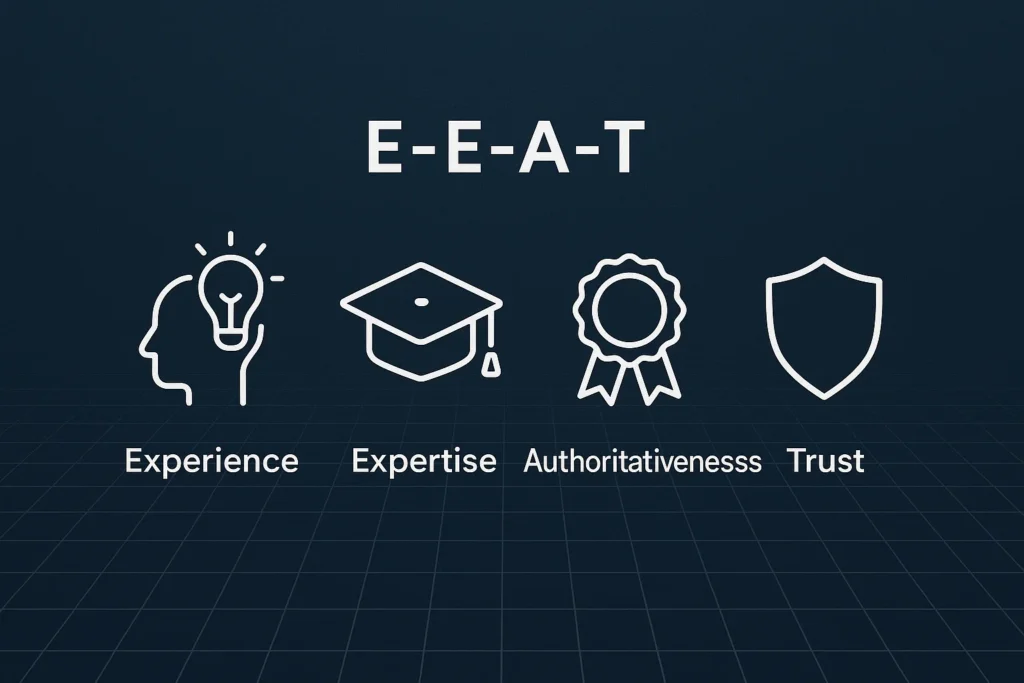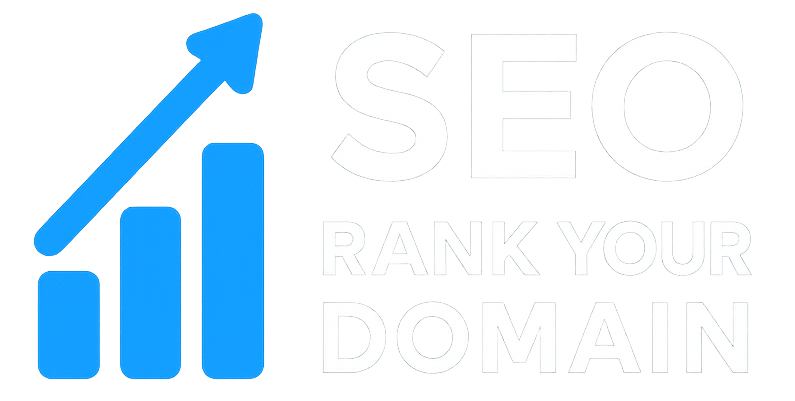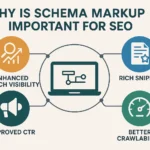
Gut punch. That’s the only way to describe the feeling. I stared at the screen, my coffee getting cold. The analytics graph for a site I lived and breathed for months looked like a heart monitor after the patient’s gone flat. Traffic hadn’t just dipped; it had vanished. Poof. This was years ago, back when a Google update hit like a hurricane you never saw coming. We were all just algorithm cowboys, trying to guess which way the digital wind would blow. Fast forward to 2025. The black box is still black, but now we have a key. A partial map. It’s called E-E-A-T. Understanding the future impact of E-E-A-T on SEO is no longer some fun thought experiment.
It’s survival.
This isn’t just another buzzword to throw around in marketing meetings. It’s a seismic shift. We’ve moved from just giving an answer to proving we have the right to give it at all.
More in On-Page & Content SEO Category
Step-By-Step Guide To Writing SEO Blog Posts
Optimize Images For Google Image Search
Key Takeaways
- Experience Is Your Trump Card: That first ‘E’ is everything. Going into 2025, algorithms are getting scary good at spotting who’s actually done the thing versus who’s just written about it. Real-world experience is the ultimate tiebreaker.
- AI Can’t Fake a Soul: The web is drowning in AI content. E-E-A-T is the lifeboat. The winners will be those who prove a real person is steering the ship—someone with opinions, quirks, and a unique point of view.
- Authority Lives Everywhere: Your website is just your home base. Google’s scanning the whole internet to see who you are. What you say in forums, the mentions you get, the communities you’re a part of—it all builds a picture of your authority.
- Trust Is the Foundation: You can be the biggest expert in the world, but if your site looks shady or your identity is hidden, no one will care. Trust is the non-negotiable price of entry for both users and Google.
- You Can’t Shortcut E-E-A-T: This isn’t a quick hack. It’s a slow burn. It means showing up day after day, building real expertise, and proving your worth over time. Think of it as a core business principle, not an SEO checklist.
So, What Exactly Is E-E-A-T, and Why Did Google Add That Extra ‘E’?
Before we jump into the deep end of 2025, let’s get our feet wet. E-E-A-T is the acronym for Experience, Expertise, Authoritativeness, and Trustworthiness. For a long time, it was just E-A-T. This whole concept comes straight from the playbook Google gives its human Search Quality Raters. You know, the thousands of actual people who check up on the algorithm’s work. This is Google’s own report card for what it considers a “quality” result.
Remember when it was just E-A-T?
Back then, the big focus for E-A-T was on what Google calls “YMYL”—Your Money or Your Life. We’re talking about the heavy stuff: medical advice, financial guidance, legal help. Basically, any topic where bad info could seriously mess up someone’s life. For that kind of content, Google’s raters needed to see hard proof of expertise. A medical article had better be written by a doctor. A financial site needed to be a recognized authority. And it made total sense. The last thing you want is a random blogger’s thoughts on tax law outranking the IRS. But for everything else on the web, from baking cookies to fixing a bike, the framework felt a bit… rigid.
Why did ‘Experience’ crash the party?
Then, in late 2022, Google dropped the extra ‘E’ into the mix, and everything changed. Experience. Google was finally saying, loud and clear, that sometimes the best answer comes from someone who has simply lived it. Think about it. Who do you want to learn from to fix a leaky pipe? An engineer who has only studied fluid dynamics, or a plumber with 20 years of grime under his fingernails? Whose review of a new video game do you trust more? The one from the big publication that played it for a few hours, or the one from the fan who has spent 100 hours finding every secret?
I learned this the hard way, and man, did it sting. I decided to create the “ultimate guide” to a local hiking trail. This thing was a monster. 2,500 words. I pulled data on elevation, researched the Latin names for the plants, the whole nine yards. It was a perfect, sterile, SEO-optimized piece of content. And it died on the vine. Total flop. A few months later, totally frustrated, I put up a quick post on my personal blog. I slapped in three blurry phone pics—the trailhead, my muddy boots, a weird mushroom. I wrote about how the trail was way tougher than it looked and that my shoes were a dumb choice.
That short, honest post, born from pain and mud, outranked my “ultimate guide” in a matter of weeks. That’s the first ‘E’ for you.
Is Google Getting Better at Actually Seeing Real Experience?
This is the multi-million dollar question, isn’t it? A person can instantly tell the difference between a generic, soulless review and a passionate rant from someone who really used a product. How does a piece of code do that? It’s tricky, but one thing is for sure: Google is looking way past the words on the page.
Can an algorithm really measure a life experience?
Let’s be real: an algorithm can’t feel the sting of sweat in your eyes on a hot day or the panic when a project goes sideways. Of course not. But it’s a bloodhound for the digital clues you leave behind. And these are clues that are a nightmare to fake, especially at scale.
What kind of clues are we talking about?
- Your Own Photos and Videos: A stock photo of a perfect-looking hamburger is meaningless. A slightly-too-dark photo of the burger you actually made, with a caption about how you almost burned the onions? That’s gold. That’s proof.
- The Nitty-Gritty Details: Experienced people talk differently. They use jargon. They mention specific model numbers. They describe feelings and sensory details. A generic article says, “The camera takes good pictures.” An experienced review says, “The Sony A7 IV struggles a bit with autofocus in low light, especially with the stock 28-70mm lens, but the eye-tracking for portraits is magic.”
- Connecting Content to a Person: Using tools like author schema tells Google, “This article wasn’t written by a faceless brand; it was written by John Smith.” And if John Smith has a detailed bio and a history of writing about this topic? That’s a massive signal.
How does this change the game for content creators?
You have to stop being a reporter and start being a storyteller. Your job isn’t just to gather facts from other places. It’s to filter those facts through your own unique life experience. The entire game shifts. Don’t write “A Guide to Starting a Podcast.” Write “I Started a Podcast with $100: Here’s Everything I Messed Up.” Stop writing generic reviews. Start creating detailed case studies about how you used a product for three months and what really happened.
Show your work.
Get your hands dirty.
Will AI Content Kill E-E-A-T, or Will E-E-A-T Kill AI Content?
And then there’s the elephant in the room: AI. Generative AI has turned the content world upside down. Anyone with a subscription can churn out an article on quantum physics in about 30 seconds. The web is facing a tsunami of robotic content, making the future impact of E-E-A-T on SEO more critical than ever. Google says it doesn’t care if a human or AI writes something, as long as it’s “quality.” But that one word, “quality,” is doing a lot of heavy lifting.
But can AI really fake first-hand experience?
Not yet. Not in a way that feels real. An LLM is an incredible mimic. It’s read more of the internet than any human ever could, and it can piece together a story that sounds perfectly logical. It can tell you the steps to bake bread. But it has never felt the sticky dough on its fingers, smelled the yeast activating, or felt the disappointment of a loaf that didn’t rise.
It produces content that lives in the “uncanny valley.” It looks right. It sounds right. But it feels… empty. It’s missing a soul. It lacks a surprising personal anecdote or a moment of genuine vulnerability. An AI can give you the map, but it can’t tell you about the time it got lost and found a hidden waterfall.
How can I “human-proof” my content against the AI wave?
You lean into your humanity. Hard. It’s the one thing you have that a machine doesn’t. Inject your personality into everything. Tell jokes. Be cranky. Be passionate. If a project blew up in your face, write about it. That story of failure is a hundred times more valuable for E-E-A-T than a polished, generic success story.
I have a client in the B2B manufacturing space. Sounds boring, right? Their blog certainly was. It was a desert of technical jargon nobody wanted to read. Our advice was simple, almost stupidly so: “Grab your phone.” We had their top engineer start shooting short, shaky videos right on the factory floor. No script. No fancy lights. He’d just point at a machine and say, “See this little gizmo here? This is why our competitors’ products fail after six months.” The change was immediate. Engagement went through the roof, and they started ranking for keywords they’d never touched before.
No AI on earth could have created that content. That was pure, unfiltered E-E-A-T.
Looking Ahead to 2025, What Does Real ‘Authority’ Even Mean?
For so long in the SEO world, “authority” was just a code word for backlinks. And look, backlinks still matter. A lot. But the idea of authority has gotten so much bigger and more interesting. Google is like a detective, piecing together clues from all over the web to figure out who the real players are in any given field.
Are backlinks still the king of off-page SEO?
They’re not the king anymore. Think of them as a very, very powerful duke. They have huge influence, but they’re not the only voice in the room. The kind of link you get is now way more important than how many you have. One single link from a true, respected expert in your niche is worth a thousand from random, low-quality sites. Google sees a link as a recommendation. A recommendation from someone you already trust means everything.
How is Google measuring authority outside of my own website?
Your digital footprint is everything. Google is looking for a consistent vibe of expertise across the entire web. This means it’s looking at:
- Mentions Without Links: When a big-name site in your industry mentions you or your brand, that’s a signal. They don’t even have to link. Google sees it.
- Where You Hang Out: Are you a helpful voice on Reddit? Do you answer tough questions on industry forums? Are you seen as a go-to person in relevant LinkedIn groups? That’s authority.
- Your Real-World Cred: Have you been on a podcast? Spoken at a conference? Been quoted in an article? These are massive trust signals that you’re a recognized authority beyond your own little corner of the internet.
I saw this firsthand with a small structural engineering firm. Their blog was brilliant—deep, insightful content. But their traffic was dead. We were pulling our hair out. Then, the lead engineer decided to start spending half an hour each day just answering questions on a super-niche forum for other civil engineers. He wasn’t selling. He was just helping. Within six months, that forum was their biggest source of leads. And their organic rankings started to climb. Google saw him being an authority among his peers and tipped its hat.
Can I Build ‘Trust’ in an Age of Deepfakes and Misinformation?
Trust is the floor that everything else in E-E-A-T stands on. It’s the last letter, but it’s the most important. If people don’t trust you, it doesn’t matter how experienced or expert you are. And in today’s world, where everyone is skeptical of everything, building that trust is a tall order.
What are the simple trust signals everyone forgets?
So often, we get lost in complex strategies and forget the dead-simple basics. Your website needs to scream “we are real, trustworthy humans.”
- Let People Contact You. A phone number, a real address, a simple contact form. Don’t hide.
- Have Clear Policies. Make your privacy policy and any other terms easy to find and read. Don’t bury them in legalese.
- Show Your Faces. An “About Us” page with real photos and bios of your team is one of the most powerful trust signals there is.
- Look Professional. Your site needs to be secure (HTTPS is a must), fast, and free of broken links and spammy ads. It needs to look like you care.
How can I demonstrate trustworthiness beyond the basics?
Once your house is in order, you can build trust through your actions. Be transparent. When you make a claim, back it up. Link to your sources. If you’re citing a study, link directly to it. It shows you’ve done the work. For a deep dive into the academic side of this, the research on digital trust from places like the Stanford University’s Human-Centered AI Institute is fascinating.
And finally, own your reputation. Encourage reviews. And then—this is the important part—respond to them. All of them. The good and the bad. A thoughtful response to a negative review can build more trust than a dozen glowing five-star ones. It shows you’re listening.
How Do I Create an E-E-A-T Strategy That Actually Works for 2025?
Okay, enough talk. How do you actually do this? Turning your content strategy toward E-E-A-T isn’t a weekend project. It’s a culture shift. It’s about auditing the old, planning the new, and committing to authenticity.
Where should I even begin auditing my content?
Start with your money pages. Your most important services, your top blog posts. Pull one up and ask the hard questions. Who wrote this? Why on earth should anyone believe them? Is there any proof of experience here, or is it just a rehashing of the top 10 search results? Be honest. If the author is “Admin,” you’re already in trouble. If the article has no unique perspective, photos, or data, you’ve got work to do.
What does a truly E-E-A-T-optimized author bio look like?
Forget the two-sentence blurb at the end of a post. In 2025, an author bio is a cornerstone of your E-E-A-T strategy. It should be its own page. It needs a detailed professional history, a list of credentials, and links. Lots of links. Link to their LinkedIn, their Twitter, other places they’ve been published, and a full list of everything they’ve written for your site. You’re building a case, providing a web of evidence that tells Google, “This person is the real deal.”
Can I build E-E-A-T for a “boring” niche?
No niche is boring. But a lot of content strategies are. Every single industry, from plumbing supplies to corporate tax law, is filled with passionate experts and decades of experience. Your job is to find it and put it on display. You don’t have to be the world’s foremost authority. Just be the most helpful, the most transparent, the most experienced voice your audience can find.
Here are a few ideas for any industry:
- Create Your Own Data: You don’t need a huge budget. Survey your customers. Analyze your own sales data. Find one interesting, unique insight and publish it. Suddenly, you’re the primary source.
- Talk to Other Experts: Don’t have the authority yourself yet? Borrow it. Start a podcast or even just a simple text-based interview series with other respected people in your field.
- Document, Don’t Create: Instead of trying to write a clever article, just document your process. Create an exhaustive, step-by-step tutorial of how you actually do something, with real screenshots and videos.
- Publish Your Failures: This is a big one. Write a detailed breakdown of a project that went wrong and what you learned. Nothing screams authenticity and experience like a willingness to admit a mistake.
Conclusion: The Human Future of Search
For a long time, SEO felt like a technical game of cat and mouse. It was us versus the machine. But the rise of E-E-A-T is changing the rules of the game for good. The future of search is human.
It’s no longer about finding the next trick or the latest loophole. The only way to win is to build a brand that actually deserves to rank. It’s about showing up and proving, day in and day out, that you have real experience to share, true expertise to offer, and that you are worthy of trust. It’s not the easy path, but it’s the only one left.
The good news? The instructions are simple.
Tell your story. Share what you know. Be the person your customer is looking for.
FAQ

What is the significance of the new ‘E’ in E-E-A-T for SEO in 2025?
The added ‘E’ in E-E-A-T emphasizes the importance of Experience in SEO, highlighting that genuine, lived experience from real individuals is crucial for establishing trustworthiness and authority in content.
How does real-world experience influence Google’s ranking algorithms?
Google is increasingly able to recognize genuine experience through digital clues such as personal photos, detailed jargon, and connecting content to real people, which influence rankings by demonstrating authentic expertise.
In what ways can content creators demonstrate authenticity and build trust with their audience and search engines?
Content creators can demonstrate authenticity by sharing personal stories, showing behind-the-scenes content, providing detailed author bios, and engaging transparently with their audience through reviews, responses, and honest documentation.
Why is authority now considered more than just backlinks, and how does Google assess it outside your website?
Authority now encompasses mentions, endorsements, and active participation across platforms, with Google recognizing influence through references in industry forums, social media presence, interviews, and real-world engagements that establish a broad digital footprint.
What practical steps can businesses take to incorporate E-E-A-T principles into their content strategies for 2025?
Businesses should audit their core pages, strengthen author bios with detailed credentials, create original data, share behind-the-scenes content, document processes honestly, and foster community engagement to demonstrate genuine expertise, authority, and trust.



